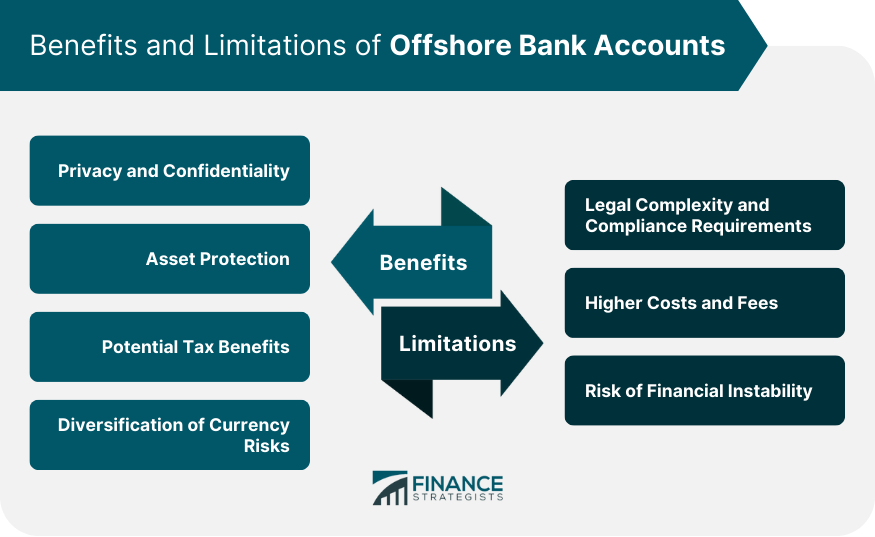Offshore Company Formations for Tech Startups: A Practical Manual
Debunking Offshore Firm Formations: Just How They Operate and What to Anticipate
Offshore business formations can seem complicated and enigmatic. Offshore Company Formations. These entities, usually established for tax obligation benefits and personal privacy, operate under distinct lawful frameworks. Entrepreneurs might discover themselves maneuvering via a puzzle of policies and compliance requirements. Understanding the ins and outs is crucial for success. What are the genuine advantages? What are the prospective pitfalls? A closer assessment exposes the subtleties that might impact decision-making significantly
Recognizing Offshore Business: Interpretations and Kinds
Offshore business are entities developed in a territory beyond an individual's or company's key nation of residence, often for purposes connected to tax obligation optimization, possession protection, or regulative benefits. These companies can take different kinds, consisting of limited liability business (LLCs), worldwide service companies (IBCs), and offshore depends on. Each type serves details functions and appeals to various needs.
Restricted responsibility business give proprietors with protection from individual obligation, while worldwide business firms are prominent for their adaptability and minimal coverage demands. Offshore counts on, on the other hand, are made use of primarily for estate planning and asset security.
The option of territory considerably influences the company's operations, as some areas offer much more desirable legal frameworks and privacy protections. Offshore Company Formations. Recognizing the distinctions between these types is vital for services and people thinking about overseas frameworks, as each alternative carries different implications for administration and conformity
The Benefits of Developing an Offshore Firm
Developing an offshore business can supply numerous advantages, particularly for those looking for to improve their financial strategies and protect their possessions. One substantial advantage is tax obligation optimization; lots of territories supply desirable tax obligation prices or exceptions, enabling businesses to retain even more revenues. In addition, offshore firms can provide a layer of privacy, securing the identifications of proprietors and investors from public scrutiny.
One more benefit is property defense. By putting assets in an offshore entity, people can protect their wealth from possible lawful cases or political instability in their home countries. This structure likewise promotes international business procedures, allowing simpler accessibility to varied clients and global markets.
Moreover, the facility of an offshore business can enhance reputation and status, appealing to clients that value worldwide business practices. In general, these advantages make overseas firm formations an eye-catching option for people and organizations going for financial growth and safety and security.
Key Considerations Prior To Forming an Offshore Entity
Prior to creating an overseas entity, numerous important factors need to be assessed. Lawful conformity requirements, tax ramifications and benefits, along with territory option, play a substantial duty in the decision-making process. Comprehending these considerations can help people and companies navigate the intricacies of overseas business formations successfully.

Lawful Compliance Requirements
When thinking about the formation of an offshore entity, comprehending legal compliance requirements is necessary to assure adherence to both global and regional regulations. Potential company owner have to acquaint themselves with policies regulating company registration, reporting obligations, and operational requirements in the picked jurisdiction. This includes verifying the legal requirements for supervisors and investors, in addition to ensuring conformity with anti-money laundering (AML) and know-your-customer (KYC) laws. Furthermore, businesses need to remain knowledgeable about any type of licensing needs particular to their market. Engaging local lawful and economic professionals can give valuable insights, guaranteeing that all essential documentation is prepared and sent appropriately. Inevitably, extensive knowledge of legal compliance helps reduce threats and fosters a lasting overseas procedure.
Tax Effects and Advantages
Numerous company proprietors take into consideration the tax effects and benefits of forming an offshore entity as an important consider their decision-making procedure. Offshore companies can offer significant tax advantages, such as lowered corporate tax obligation prices, exemption from particular regional taxes, and the capacity to postpone tax obligations on foreign revenue. These benefits can cause boosted profitability and cash circulation, making offshore frameworks appealing for worldwide business procedures. In addition, the possibility for tax treaties may further minimize tax obligations. Nonetheless, it is necessary for entrepreneur to recognize the complexities involved, including conformity with both global and regional tax obligation regulations. Involving with tax obligation specialists is recommended to browse these intricacies successfully and guarantee excellent tax obligation preparation techniques.
Jurisdiction Choice Variables
What aspects should one consider when picking a jurisdiction for offshore business development? Trick considerations consist of tax obligation efficiency, regulative environment, and political stability. Territories with desirable tax obligation programs can significantly impact profitability. The regulatory landscape should provide versatility and convenience of compliance, enabling effective service operations. Political security is vital, as it assures the safety of assets and continuity of procedures. Additionally, the online reputation of the territory can impact client trust and service relationships. Availability to banking solutions and the schedule of professional assistance solutions are likewise important. Finally, comprehending regional legislations concerning possession, reporting, and privacy needs is necessary to identify that the offshore entity aligns with the business you could try this out owner's goals and legal obligations.
The Refine of Establishing Up an Offshore Firm
Establishing an offshore company includes a series of critical actions that require careful preparation and compliance with global policies. Originally, an individual should select an appropriate territory that aligns with their business purposes and offers positive tax obligation benefits. Complying with jurisdiction option, the following action is to choose a special business name and prepare the essential documentation, consisting of articles of unification and investor contracts.
As soon as the documents is all set, it has to be sent to the appropriate authorities along with the needed costs. After authorization, the firm will receive a certificate of unification, officially establishing its legal existence. The individual have to after that open a business bank account to promote financial deals.
Preserving an offshore business involves sticking to ongoing conformity needs, such as annual coverage and tax responsibilities, which differ by jurisdiction. Therefore, understanding each action is important for an effective overseas business development.
Legal and Governing Framework for Offshore Firms
While establishing an overseas company can provide considerable advantages, it is vital to steer with the complex legal and regulatory framework that controls such entities. Each territory has its very own collection of laws that dictate whatever from business formation to taxes and conformity needs. These policies are made to avoid illegal tasks, such as cash laundering and tax evasion, and usually need complete documents and openness.
Key aspects of this framework include the need of selecting local supervisors, keeping an authorized workplace, and adhering to annual coverage responsibilities. Furthermore, lots of territories enforce details licensing demands for sure service activities. Comprehending these legal specifications is important for making sure compliance and mitigating dangers connected with penalties or lawful disagreements. Subsequently, involving with lawyers who focus on offshore companies can assist in navigating through this detailed landscape, inevitably helping with a successful and compliant overseas business procedure.
Usual Mistaken Beliefs Concerning Offshore Companies
Lots of people hold false impressions regarding offshore companies, commonly equating them with tax obligation evasion and unlawful tasks. However, it is essential to acknowledge that these entities can run lawfully within a structure designed for reputable company methods. Making clear the lawful status of overseas companies can assist resolve these myths and advertise an extra precise understanding of their objective.
Tax Evasion Misconceptions
In spite of the growing popularity of offshore firms, misconceptions regarding their Get More Info use for tax evasion continue. Numerous individuals erroneously think that developing an offshore entity is exclusively a method to avoid tax obligations. Overseas business are usually used for legitimate objectives, such as property protection, global company growth, and financial investment diversity. The assumption that all overseas tasks equate to illegal tax obligation evasion neglects the complexities of international tax obligation guidelines and compliance needs. Furthermore, the large bulk of overseas territories have actually implemented procedures to battle tax evasion, promoting openness and information exchange. This mischaracterization can hinder legit services and capitalists from exploring the prospective advantages of overseas firm formations while bolstering a negative stigma bordering these entities.
Lawful Status Clarified
The lawful standing of offshore business is usually misunderstood, bring about a range of false impressions. Many believe these entities run in a legal gray area, presuming they are dishonest or naturally prohibited. Actually, overseas business are legit organizations formed under the legislations of certain jurisdictions, made for different reasons, consisting of property defense and market expansion. An additional usual false impression is that overseas companies avert tax obligations totally; however, they are subject to the policies and tax obligation obligations of their home countries. In addition, some individuals think that offshore companies can be easily exploited for cash laundering or prohibited activities. While abuse can occur, many jurisdictions impose strict conformity and openness regulations to minimize such risks, ensuring that offshore companies run within lawful structures.

Taking care of and Running Your Offshore Firm Properly
Successfully taking care of and running an offshore business calls for a calculated technique that balances conformity with neighborhood policies and the search of company goals. Effective overseas monitoring involves comprehending the jurisdiction's tax regulations, reporting demands, and operational regulations. Employing local specialists, such as accounting professionals and lawful experts, can provide indispensable insights into traversing these complexities.
Additionally, establishing clear communication channels and operational procedures is crucial for preserving performance. Making use of technology for project administration and cooperation can improve efficiency, while regular efficiency assesses warranty positioning with tactical purposes.
Keeping durable financial documents is essential, as transparency cultivates trust fund with stakeholders and complies with worldwide requirements. Being adaptable to adjustments in legislation Go Here or market conditions allows overseas companies to pivot properly, ensuring long-term sustainability and development. By adhering to these principles, company owner can take full advantage of the benefits of their offshore endeavors while mitigating risks.
Often Asked Questions
Just how much Does It Cost to Preserve an Offshore Firm Every Year?
The cost to preserve an overseas company each year differs significantly, usually varying from $1,000 to $5,000, depending on jurisdiction, solutions needed, and conformity obligations. It is necessary to take right into account added fees for certain needs.
Can I Open a Checking Account for My Offshore Firm Remotely?
Opening up a bank account for an offshore firm from another location is typically feasible. Nonetheless, demands might vary by territory, frequently demanding documentation and confirmation procedures, which can complicate the remote application experience for individuals.
Exist Particular Nations Known for Easier Offshore Business Formations?
Particular nations, such as Belize, Seychelles, and the British Virgin Islands, are renowned for their streamlined procedures and desirable laws regarding offshore business formations, attracting entrepreneurs seeking efficiency and confidentiality in organization procedures.
What Kinds of Organizations Are Ideal Fit for Offshore Companies?
Certain organizations, such as financial investment, consultancy, and shopping firms, commonly gain from overseas companies as a result of tax advantages, personal privacy, and regulative adaptability - Offshore Company Formations. These entities usually prosper in jurisdictions that advertise positive business settings
How Can I Make Certain Compliance With Neighborhood Regulations When Operating Offshore?
To assure compliance with neighborhood laws when running offshore, it is vital to involve lawful professionals, conduct detailed research on jurisdiction laws, and maintain transparent economic records, consequently decreasing threats connected with non-compliance.
